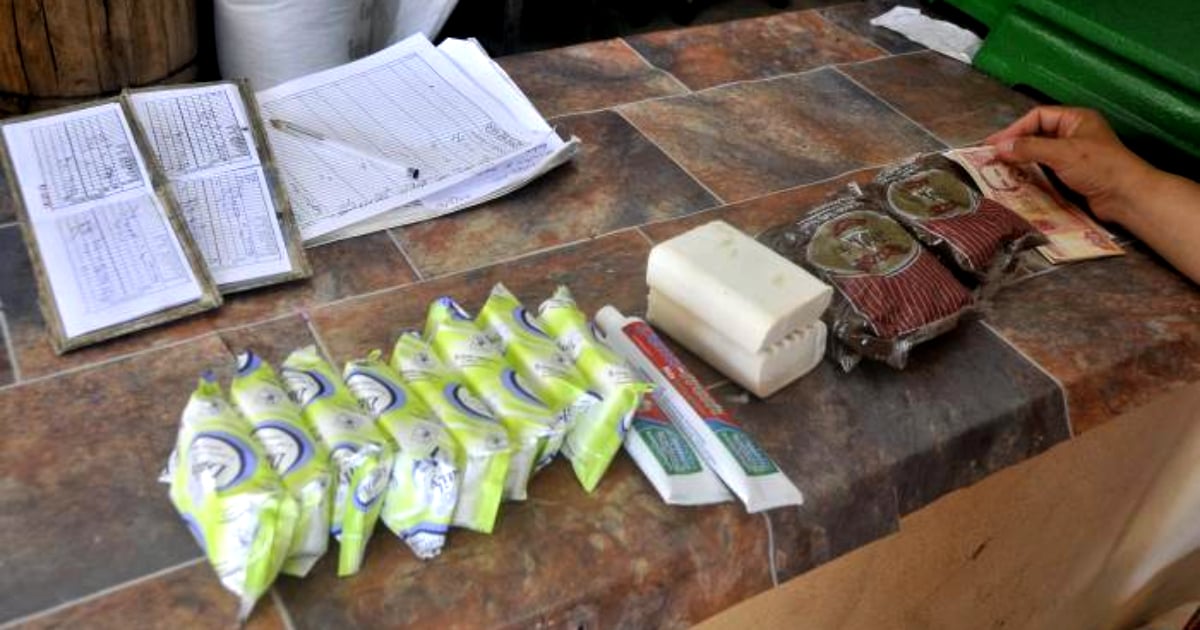A report from the Ministry of Domestic Trade (MINCIN) published on Monday, September 16, revealed that residents of Havana have not received their ration of toothpaste included in the basic family basket since March.
According to the Provincial Trade Company of Havana, the distribution of products for August, which the state provides in a rationed and subsidized manner, will begin in the capital from September 16 to 21. Among the delayed products (corresponding to August, not September), MINCIN included "toothpaste," intending to "recover the delays of the second bimester March-April." In other words, Havanans have been without rationed toothpaste for six months, a situation similar to what's been experienced in Las Tunas.
The MINCIN list highlights the dire state of the Cuban communist regime's rationing policy. Following the failed "economic reorganization," Miguel Díaz-Canel's government announced it would start eliminating "excessive subsidies and undue gratuities," leading many to believe the ration book might soon be a thing of the past.
In October 2020, Díaz-Canel explained during the Mesa Redonda television program that the ration book would gradually be phased out nationwide. He clarified that "undue subsidies" would be partially removed, but there would also be reforms in salaries, pensions, and product prices.
Four years later, the results of these economic measures are evident to all Cubans, who have seen their purchasing power and standard of living drastically decline. The nation faces a devastating crisis marked by food and medicine shortages, deteriorating public services, and increasing poverty, inequality, and disease.
Subsidy Reforms and Continued Rationing
In December 2023, the Cuban regime announced it would end the universal subsidy for the basic food basket. Presenting the economic impact plan before the Second Ordinary Period of Sessions of the National Assembly of People's Power (ANPP), Prime Minister Manuel Marrero Cruz explained that the idea was to "subsidize people, not products," aiming to create a "more just and efficient system."
He stated that the Ministry of Labor and Social Security would be tasked with identifying individuals based on their vulnerability levels and providing the corresponding aid "over the next weeks and months."
"It is not fair that those who have a lot receive the same as those who have very little. Today, we subsidize the same for a retired elderly person as we do for the owner of large private businesses who has a lot of money," Marrero Cruz said.
However, two days after the announcement, Minister of Domestic Trade Betsy Díaz Velázquez assured that the ration book would remain in place in 2024, dismissing rumors of its disappearance. "We want to reaffirm once again that the ration book remains the distribution method that the Revolution decided to create and maintain 60 years ago for equitable distribution to our population," she told the official ACN. "Therefore, the rumors about its disappearance are unfounded," she added.
Given the failure of the "economic reorganization," the regime seems to be opting for a gradual and quiet extinction of the ration book, which increasingly accumulates delays in delivering fewer and fewer products in smaller quantities.
This September, Havanans will receive 10 ounces of beans and peas per consumer, two pounds of sugar, seven pounds of rice (distributed in fractions according to availability), and the salt corresponding to the third quarter (June, July, and August). Additionally, children ages zero to two years and 11 months will receive 13 boxes of compote; children ages seven to 13 will receive four bags of soy yogurt (some "territories have pending deliveries"), and children ages zero to two will receive a 30-day supply of powdered milk, while those ages two to six will receive only a 10-day supply.
Soap (both laundry and bath) and liquid detergent will be distributed quarterly and bimonthly, respectively. Furthermore, the daily bread provided as part of the basic basket has been reduced from 80 grams to 60 grams in weight. And toothpaste, which Havanans have not received through the ration book for half a year, will also start to be distributed in the capital. Smile, because things could, and likely will, get worse.
FAQs About Cuba's Rationing System
Here are some frequently asked questions regarding Cuba's rationing system and the current shortages impacting Havana residents.
Why has toothpaste not been distributed in Havana for six months?
The Ministry of Domestic Trade (MINCIN) has revealed that delays in the distribution of toothpaste are due to backlogs from the second bimester (March-April), highlighting the ongoing issues in the rationing system.
What is the Cuban government’s plan for the ration book?
Although there were announcements about gradually phasing out the ration book, recent statements from officials like Betsy Díaz Velázquez indicate that it will remain in place at least through 2024.
What products are currently being distributed through the ration book in Havana?
In September, Havanans are receiving limited quantities of beans, peas, sugar, rice, salt, compote, soy yogurt, powdered milk, soap, and liquid detergent. The daily bread ration has also been reduced in weight.
What changes has the Cuban government made to subsidies recently?
The government announced an end to the universal subsidy for the basic food basket, shifting to a model where subsidies are provided to individuals based on their level of vulnerability.
